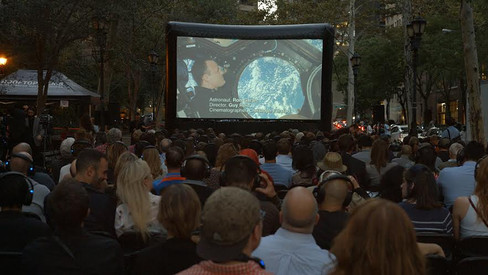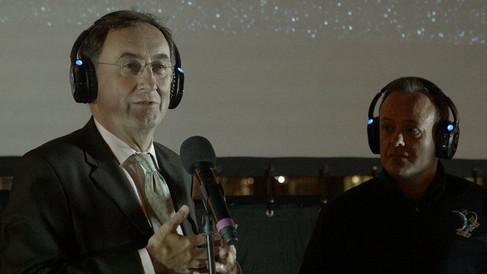Rising Above A Conversation with Ron Garan, Astronaut*
- Jan 24, 2023
- 3 min read
Updated: Feb 16, 2023
“In order for life to survive on Earth, one specific species–Homo sapiens–needs to figure out how to be the first species in history to cooperate on a global scale."

Ron Garan aboard the International Space Station. Image courtesy of NASA.
CENTERPOINT NOW (CPN): Imagine we are now in the year 2100. How has humanity’s relationship to space evolved?
Ron Garan (RG): In 2100, space travel will be seen as a natural continuation of the story of human migration that began 200,000 years ago in Africa, that has taken humanity to every ecosystem on Earth and, starting in the late 20th century, included the possibility that humans could migrate to the stars.
CPN: How did you become inspired to engage in space exploration?
RG: The crew of Apollo-8 became the first humans to see the Earth as a whole planet, and the first to capture that for the rest of us with the photograph, “Earthrise.” That image inspired the modern environmental movement and helped encourage me personally to pursue a career that would take me to space. It revolutionized how we see the world and how we see ourselves with its simple message– that we are one people, traveling together on one planet, toward one shared future. 2001 Space Odyssey author, Arthur C. Clarke, summed up its significance this way: “The world that existed before Christmas 1968 has passed away as irrevocably as the Earth- centered universe of the Middle Ages. The second Copernican revolution is upon us, and with it, perhaps, the second Renaissance. (...) Many of the children born on the day that Apollo-8 splashed down may live to become citizens of the United Planets.”
CPN: The UN is now marking its 75th anniversary. Would you envision a role for the UN off Earth?
RG:The principles for the governance of a human settlement off Earth should be the same as they are on Earth. Governance should first and foremost serve the totality of people and other living things contained within the biosphere that sustains life. This means that every person within the biosphere should be afforded the opportunity to fulfill their potential and make a unique contribution to the society of their choosing. On Earth, “within the biosphere,” should be taken to mean every single person on the planet, no matter what country they are a citizen of.
CPN: What are the implications of private sector involvement in space exploration and eventually terraforming?
RG: I imagine off-planet settlements and, eventually, terraforming, will likely be conducted by public-private partnerships with governments making the lion share of the very long-term investments, and the private sector involved mainly in investments with shorter- term ROI. Concerning terraforming, our first step would be to learn how to maintain the life support systems of our home planet Earth. If we can’t even control a couple of degrees of temperature change on our own planet, how do we think we can terraform an entire other world?
CPN: In that sense, why do you believe investment in space exploration is important for humankind?
RG: Investment in space exploration is the best long-term investment in our future that we can make. The challenges facing humanity boil down to a matter of perspective. Besides all the direct and spin-off technological benefits that have already, and will continue to vastly improve life on Earth, space exploration broadens and expands our perspective. Humanity is at a critical moment in history, when the very survival of all life on our planet hangs in the balance. In order for life to survive on Earth, one specific species–homo sapiens– needs to figure out how to be the first species in history to cooperate on a planetary scale. Many species cooperate on a massive scale (ants, bees, fish), but all limit their cooperation to their community, however that is defined (the anthill, beehive, or school). Humans need to expand their community to encompass the entire planet. Space exploration provides the necessary shift in perspective that will serve as the foundation of a fully functioning planetary community.
Ron Garan is a highly decorated NASA astronaut, fighter pilot, and active social entrepreneur who believes that appropriately designed and targeted social enterprise can solve many of the problems facing our world.
Ron Garan and United Nations Assistant Secretary General on Climate Change Jonos Pasztor were special guest speakers for A View From The Cloud event at Dag Hammarskjold Plaza September 14, 2015
* Rising Above A Conversation with Ron Garan, Astronaut is featured in Centerpoint Now ©2020, World Council of Peoples for the United Nations, UN 75th anniversary special edition "Are we there yet?" co-produced with Streaming Museum.



